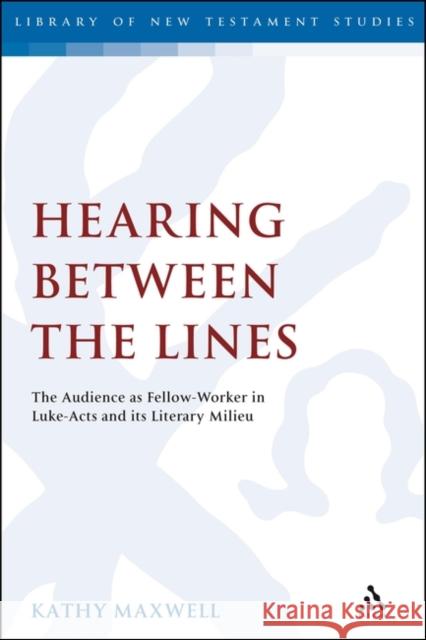Hearing Between the Lines » książka
Hearing Between the Lines
ISBN-13: 9780567592910 / Angielski / Twarda / 2010 / 224 str.
The audience, and its varying levels of participation, is a vital element for the communication of a story. The stories of Jesus Christ as told in the gospels, and of the early Church as found in Acts, rely on the audience members and their participation as do all others. In fact, without audience participation, the narrative fails. Audience-oriented criticism, while named only recently, is an ancient phenomenon as old as story telling itself. Kathy Maxwell explores ancient rhetoricians' comments about 'the audience', as well as the kinds of audience participation they expected and the tools used to encourage such participation. Such tools were employed in ancient pagan, Jewish, and Christian literature - the concern being to engage the audience. Maxwell's conclusions impact not only the way biblical scholars view the rhetorical abilities of the Evangelists, but also the way in which modern readers 'hear' the biblical narrative. The modern audience also bears the responsibility of hearing between the lines, of creating the story with the ancient author.











